Lysol is a brand that makes a lot of effective cleaners. Now, we also know about the cleaning properties of vinegar and how it works wonders, so you’re probably wondering if these two cleaners can be mixed to get a more powerful and effective one. Is this possible? Is it safe?
We know there are different Lysol cleaners so this question can’t be answered generally for all. This is why we have selected different Lysol cleaners and individually considered them carefully to see if they can be mixed with vinegar.
Can Lysol and Vinegar Be Mixed?
Lysol and vinegar can be toxic if mixed. Not only is this dangerous to the environment and pets, but also to you. Vinegar is an acid and Lysol should never be mixed with an acid.
In fact, Lysol is not supposed to be mixed with other products at all. Lysol on its own can be toxic and dangerous if used without care or proper ventilation.
Caution should be practiced even when you’re disposing of expired Lysol products. Disposing of different cleaning products can sometimes be dangerous too. They should be handled separately.
Why Happens When You Mix Lysol with Vinegar?
1- It Creates Gas
Lysol is a cleaning product that contains ammonia compounds and has a pungent smell, and ammonia should never be mixed with vinegar.
When Lysol is mixed with vinegar, it can create chlorine gas which will give off toxic fumes and is harmful when inhaled.
You can feel a headache, nauseous, or weak and can even suffer something worse if you are exposed to that environment for a long time. Using Lysol alone is enough trouble if not properly handled.
2- You Create a Weak Solution
Vinegar is acid while ammonia is alkali/base. When the two are added together, they negate each other (One cancels the other). This means you are left with a solution that is weaker than each of the products.
Using either Lysol or vinegar would have been sufficient for your need. So avoiding mixing them isn’t just a matter of safety but also of effectiveness.
Various Lysol Products & Their Interaction with Vinegar
Lysol is a brand that produces many cleaning products with different names and they are not all made with the same materials. So we will examine each carefully, and explain if they can be mixed with vinegar safely to increase effectiveness.
Lysol® All-Purpose Cleaner + Vinegar
This All-purpose cleaner is one of the most popular Lysol cleaners because of its versatility. It can be used to clean, sanitize, disinfect, as well as cut through grease and is useful around the home in many different ways.
This product comes in a spray bottle with a well-built trigger system which makes it easier to use.
However, it cannot be mixed with vinegar. The All-purpose cleaner contains ammonia compounds and alkyl, which means either or both of the two things mentioned above (weaker solution and toxic gas) could happen if they are mixed.
There’s no need to add vinegar to this product to get the result you want. Nasty stains and stubborn grease can be tackled alone by applying this cleaner.
If you are faced with a decision to choose between Lysol All-purpose cleaner and vinegar, don’t hesitate to choose the All-purpose cleaner. Unlike some Lysol products with a pungent smell, this one has a nice and inviting smell. It comes in two scents; lemon breeze and cherry blossom and pomegranate.
Lysol® Hydrogen Peroxide Multi-Purpose Cleaner + Vinegar
Lysol® Hydrogen Peroxide Multi-Purpose Cleaner is the answer if you are looking to get rid of tough grease stains and soap scum in the bathroom and kitchen and don’t want to use bleach.
Ammonia hydroxide can be harmful when it touches the skin or is inhaled, so many people avoid cleaners with ammonia. Well, the good news about this product is that, unlike other Lysol products that contain ammonia, this one doesn’t.
The smell of this product can sometimes be strong though, so you should use it in a well-ventilated area.
Even though this product doesn’t contain ammonia hydroxide, it still can’t be mixed with vinegar. This is because mixing vinegar with hydrogen peroxide can create a corrosive acid. When inhaled, it can damage the nose, lungs, and throat, and when it touches the skin, it can irritate. (Source)
Although the concentration of hydrogen peroxide in this product is just about 0.88% of the ingredients used, mixing it with vinegar still can’t be risked.
And since this kills 99.9% of germs, you don’t need vinegar for sanitization purposes.
Lysol® Disinfectant Concentrate + Vinegar
Unlike the Lysol products we have discussed, Lysol disinfectant concentrate is manufactured mainly to disinfect. It is not meant to be used to clean or wash.
Surfaces that are prone to germs like toilet bowls, sinks, faucets, etc. can be disinfected in minutes with this product. It protects the home from germs and helps keep your family safe from many diseases.
Note that this disinfectant is alcohol-based and highly inflatable so be careful when using it. Also, avoid spraying it in the air so you don’t inhale and harm yourself. It lasts for a long time because it is diluted before use. 2 1/2 tbs of Lysol disinfectant to 1 gallon of warm water is advised.
Lysol disinfectant concentrate does not contain ammonia chloride or hydrogen peroxide so it can be mixed with vinegar safely. The main ingredient in it is ethanol and it is an alcohol and not so different from vinegar.
Adding vinegar to this product is however not necessary. The purpose of the product is to disinfect and not to clean. Adding vinegar won’t increase its disinfecting power, so it would be a waste of money, time, and energy. Just dilute and use.
Lysol® Power Toilet Bowl Cleaner + Vinegar
This Toilet Bowl Cleaner is what you need if you have bowl rings and tough stains in your toilet, especially those stains that have been there for a long time and defy every other cleaner.
Not only does this product cleans the toilet, but it also disinfects. After applying the cleaner to the bowl and under the rims in your toilet, scrub immediately if you want to clean, but if you want to disinfect, let it sit for about 15 minutes. You can then rinse and flush the toilet.
Note that vinegar cannot be mixed with Lysol power toilet bowl cleaner. It could be very dangerous. This cleaner contains hydrochloric acid and sodium hypochlorite, which are already concerns because of the risk of allergies, skin irritation, and respiratory problems.
Adding vinegar to this cleaner can cause a harmful reaction. The toxic fumes will irritate your nose, throat, and eyes.
Lysol® Power Bathroom Cleaner + Vinegar
This bathroom cleaner not only removes soap scum and prevents mold growth in the bathroom, but it also removes lime scale and disinfects the bathroom. Shake before use, leave for a few seconds or minutes and wipe. It’s that simple.
For cleaning, you can wipe a few seconds after spraying, but to sanitize or disinfect you can let it sit for about 5 minutes before wiping it off. Clean the area first.
This Lysol product can be mixed with vinegar. The active ingredient in this product is citric acid. It is harmless, derived mostly from fruits, and does not react with vinegar.
Doing this is however not necessary. Citric acid is stronger than vinegar, although they are both acids. Mixing vinegar with Lysol bathroom cleaner won’t make much of a difference.
Lysol® Mold and Mildew Remover + Vinegar
This Lysol Mold remover works very well in getting rid of mold and mildew, soap scum, and limescale around the bathroom. It also disinfects the area and ensures germs and other bacteria are killed and future mold is prevented.
This effective mold and mildew remover is quite simple to use. Spray it on the surface where mold and mildew are present until it is soaked, and let it sit for like 10 minutes. You can then begin scrubbing with a brush. The mold will start to fall off.
Lysol mold and mildew remover cannot be mixed with vinegar. The product contains bleach and mixing vinegar and bleach is dangerous. It can land you in a hospital.
But then there’s no need to do this. Vinegar can’t do much against mold and mildew. Your best bet is bleach which is already an active ingredient in this Lysol cleaner.
Lysol® Laundry Sanitizer + Vinegar
When our clothes go through the wash cycle, at that hot temperature, with the combination of detergent, bacteria are killed. But not at all times, especially if you’re washing at a low temperature. Lysol laundry sanitizer ensures that your clothes are completely free of bacteria and viruses after washing.
You can use it during the rinse cycle or the pre-soaking of the clothes before washing. One or two caps of the cleaner are enough for a full load wash cycle.
This Lysol cleaner cannot be mixed with vinegar. It contains ammonium chloride and we have explained the dangers of mixing vinegar with ammonium chloride.
And while vinegar sanitizes to an extent and is cheaper, Lysol laundry sanitizer is more effective and more reliable.
What Not to Mix with Vinegar?
1- Bleach
Apart from ammonia and hydrogen peroxide which we have mentioned earlier in the article, you shouldn’t mix vinegar with bleach too.
Just like the case with ammonia, mixing vinegar with bleach or any cleaner that contains bleach will create chlorine gas.
This is a toxic gas and can cause serious damage to your health. You don’t want to inhale this gas. Depending on the level and the type of exposure you have to this gas, the symptoms will vary. You can suffer from violent cough, nausea, lightheadedness, nose and throat irritation, and many other troubles.
Similarly, Lysol should also not be mixed with Bleach, this will also cause the formation of Chlorine gas.
2- Baking Soda
Although vinegar and baking soda pose no risk while mixing or using, mixing excess and storing the leftover for future use can be harmful.
When baking soda and vinegar are mixed and stored in a sealed container, the container explodes because of the carbon dioxide the solution produces. This gas will seek freedom for itself and lead to this explosion. (Source)
If you or your children are around the container at that time, you could get hurt. It can be more dangerous if the solution is stored in a glass container.
Vinegar vs Lysol (For Disinfected Bathrooms)
If you want to kill germs and bacteria in your bathroom, then you want to use more than just vinegar.
Vinegar has a lot of cleaning properties and can get rid of stains and grease, especially when combined with other cleaning materials, but it cannot disinfect properly.
When vinegar is used in an area where germs or bacteria are present, they will be weakened but the area won’t be totally free from germs.
Bleach and other commercial cleaners like Lysol Disinfectant Concentrate, which are manufactured to disinfect are better choices than vinegar.
Final Thoughts!
Generally, Lysol cannot be mixed with vinegar and we have discussed many different Lysol products for their combination with vinegar.
Although not every Lysol product contains ammonia or hydrogen peroxide, adding vinegar to Lysol doesn’t serve any purpose. Lysol cleaners are powerful enough on their own and do not need a boost.
Vinegar cleans better than it disinfects. So don’t rely on it to disinfect your bathroom.

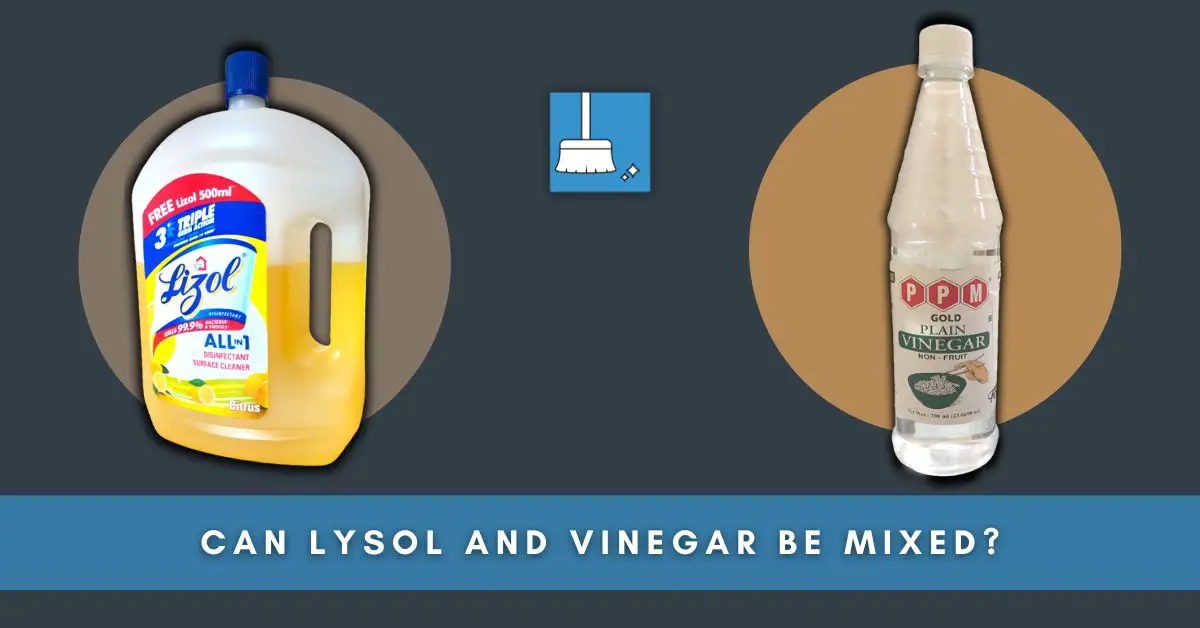
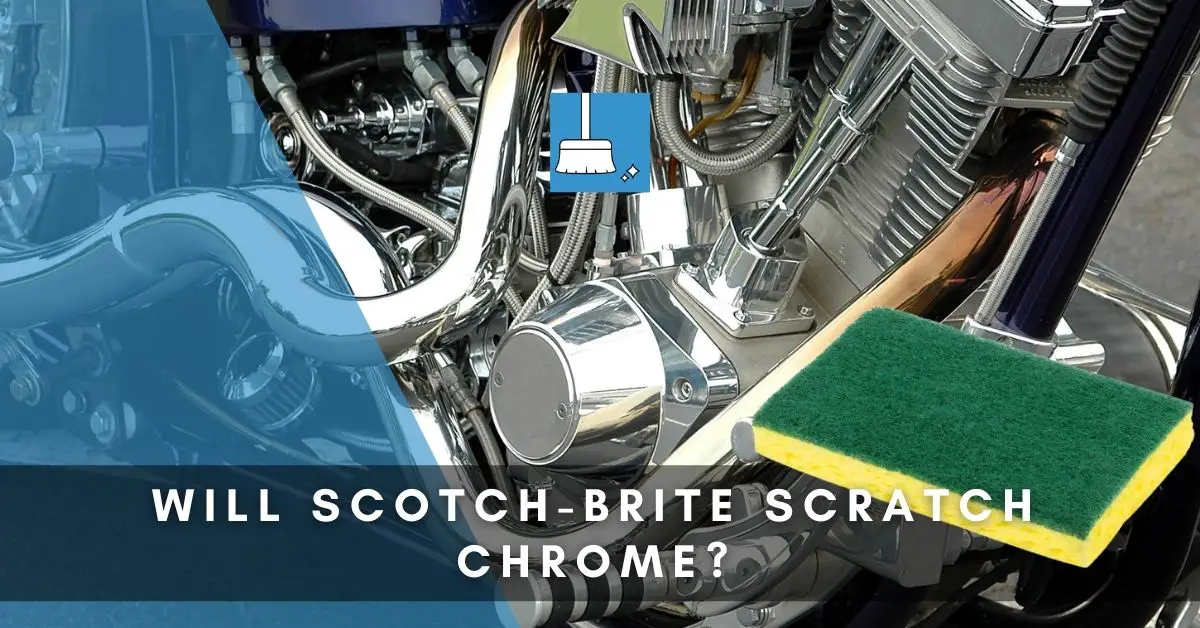
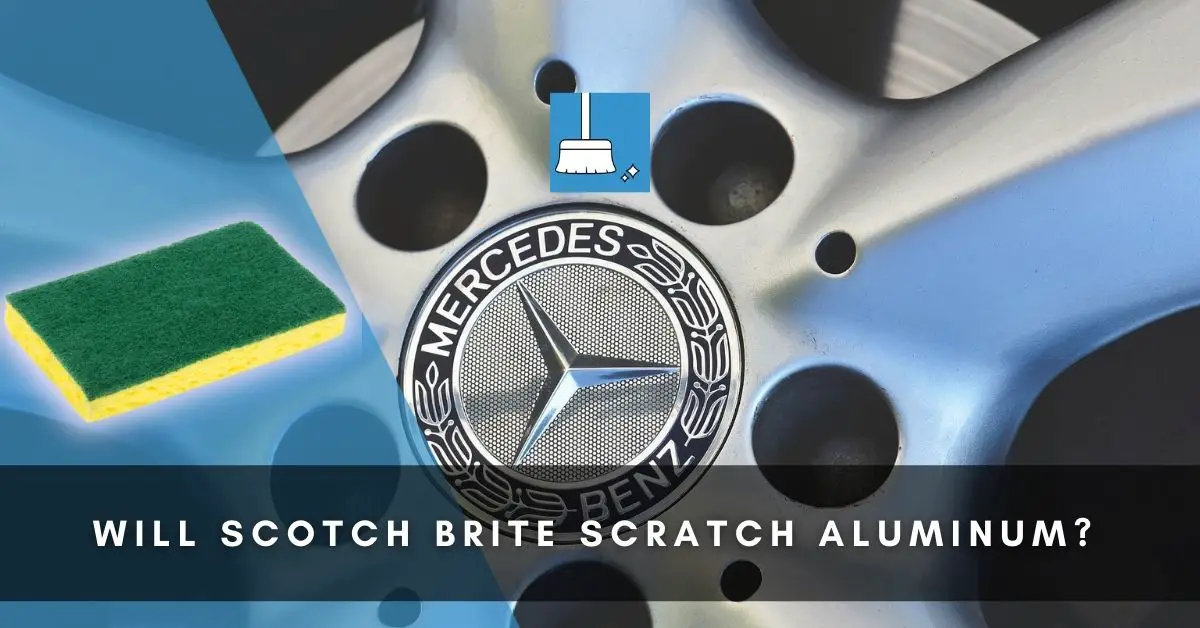
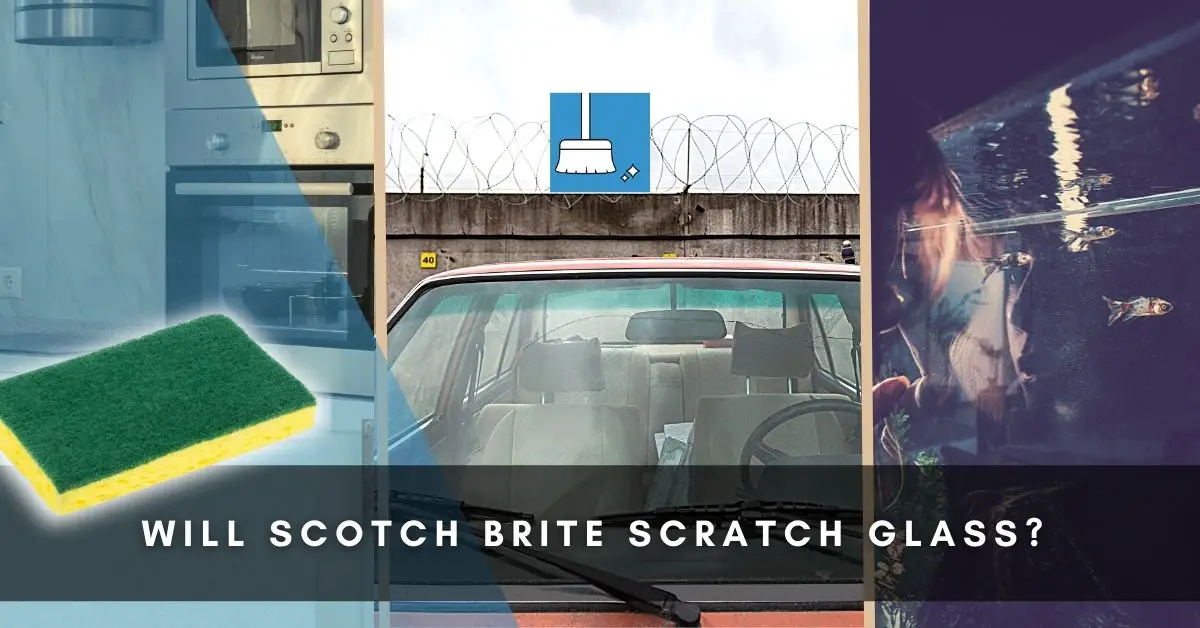
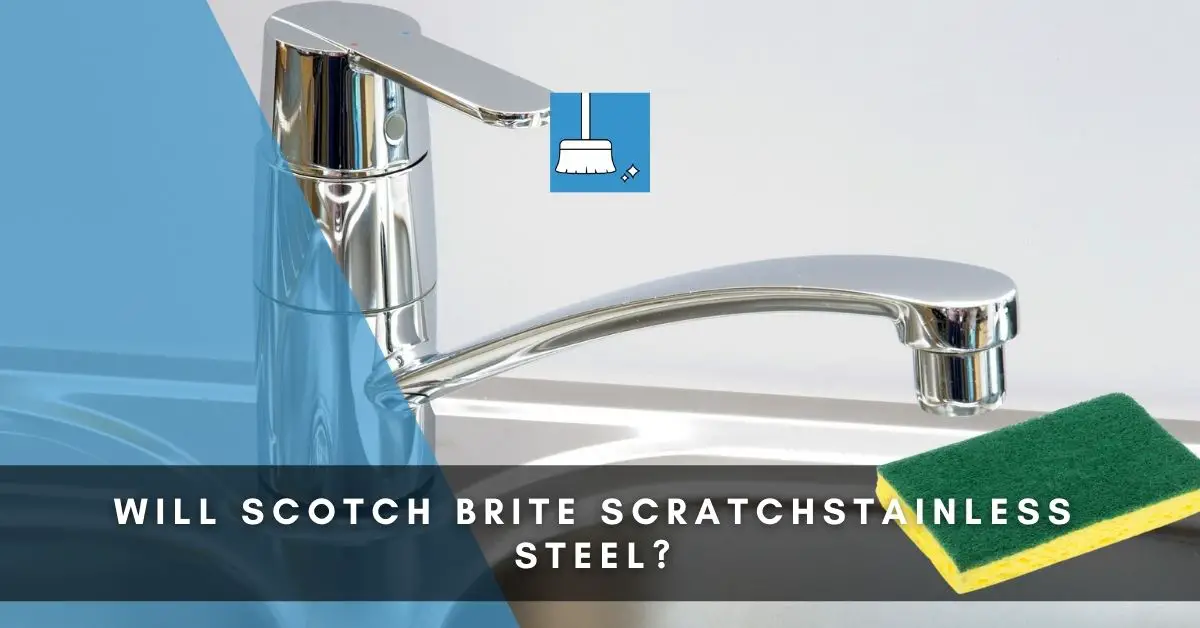
Pingback: Can You Mix Lysol & Baking Soda? (With Safety Tips!) »